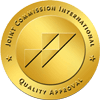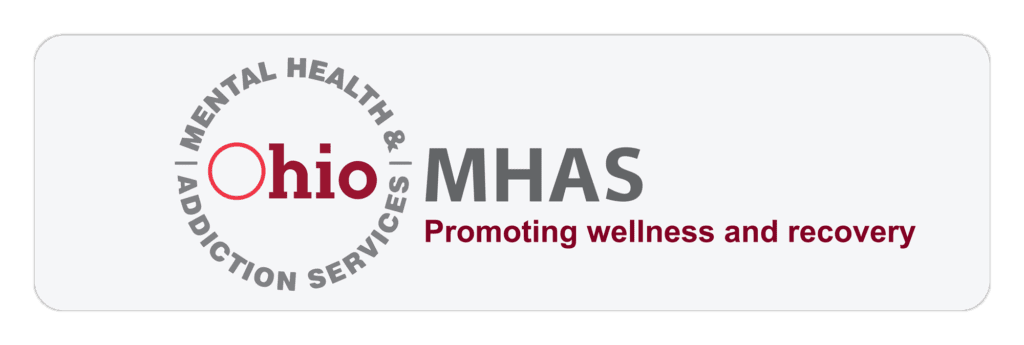Alcohol Addiction
Recovery and Treatment
in Chardon, OH
Alcohol is a legal drug for those who are of age, and its use has been normalized socially and in media. That doesn’t make it any less dangerous: an estimated 15 million people in the United States suffer from alcohol addiction, which is nearly 5% of the population.
Alcohol abuse and addiction can affect a user’s health, job, relationships, and more — especially if they’re mixing alcohol with other controlled substances — but quitting alcohol can be difficult and even dangerous. Fortunately, however, people with alcohol addiction have options for treatment. At Prosperity Haven, we believe that empowering our clients and their loved ones starts with making sure they’re informed about their foe. Below, you can learn more about alcoholism, what makes alcohol abuse so dangerous, why it’s tricky to quit, and how we can help.

What Is an Alcohol
Use Disorder?
Alcohol addiction, also called alcoholism, goes by the technical name: alcohol use disorder (AUD). It’s considered a chronic, relapsing brain disorder that compels people to feel like they can’t function without alcohol. It’s characterized by the frequency with which one drinks, “binge drinking”, in which a person consumes at least 4-5 drinks in two hours, and drinking at inappropriate or dangerous times, such as while driving.
Like most addictions, alcoholism does not discriminate. Frequent drinking can cause dependence to the substance, because alcohol changes how the parts of the brain responsible for pleasure and judgment work — the more a person drinks the higher the chances are that dependence and addiction will follow.
Some people are more at-risk for developing a drinking problem or alcoholism than others. AUD can be hereditary, meaning that genetics can play a role in how likely a person is to develop an alcohol addiction. Childhood trauma can also be a risk factor in developing addiction to any substance.
 What Is an Alcohol
What Is an Alcohol
Use Disorder?
Alcohol addiction, also called alcoholism, goes by the technical name: alcohol use disorder (AUD). It’s considered a chronic, relapsing brain disorder that compels people to feel like they can’t function without alcohol. It’s characterized by the frequency with which one drinks, “binge drinking”, in which a person consumes at least 4-5 drinks in two hours, and drinking at inappropriate or dangerous times, such as while driving.
Like most addictions, alcoholism does not discriminate. Frequent drinking can cause dependence to the substance, because alcohol changes how the parts of the brain responsible for pleasure and judgment work — the more a person drinks the higher the chances are that dependence and addiction will follow.
Some people are more at-risk for developing a drinking problem or alcoholism than others. AUD can be hereditary, meaning that genetics can play a role in how likely a person is to develop an alcohol addiction. Childhood trauma can also be a risk factor in developing addiction to any substance.

Signs and Symptoms of Alcohol Addiction
Alcohol abuse can look different from person to person, but many of the indicators of an alcohol addiction are common across all sufferers. Some of the most obvious signs have to do with a changing relationship to alcohol:
- The inability to control how much alcohol is consumed
- Difficulty curbing alcohol use
- Using alcohol frequently or bingeing
- Using in unsafe situations like driving
- Using alcohol even when it will negatively affect those around the user
- Spending a lot of time acquiring or consuming alcohol
- Spending a lot of time recovering from alcohol use
- Intense cravings for alcohol
- Increased tolerance to alcohol
- Increased dependence on alcohol to cope with daily life

 Signs and Symptoms of Alcohol Addiction
Signs and Symptoms of Alcohol Addiction
Alcohol abuse can look different from person to person, but many of the indicators of an alcohol addiction are common across all sufferers. Some of the most obvious signs have to do with a changing relationship to alcohol:
- The inability to control how much alcohol is consumed
- Difficulty curbing alcohol use
- Using alcohol frequently or bingeing
- Using in unsafe situations like driving
- Using alcohol even when it will negatively affect those around the user
- Spending a lot of time acquiring or consuming alcohol
- Spending a lot of time recovering from alcohol use
- Intense cravings for alcohol
- Increased tolerance to alcohol
- Increased dependence on alcohol to cope with daily life
Online Treatment Application
"*" indicates required fields


Long-Term Effects of Alcohol Abuse & Addiction
Alcohol can cause serious health and mental problems over time, especially when it’s used too often. Some of the most dangerous long-term effects of alcohol abuse include:
- Organ damage. Heavy drinking can damage the heart, brain, liver, stomach, pancreas, eyes, bones, blood cells, and blood sugar levels, sometimes with lethal results.
- Neurological problems. Alcohol addiction can lead to an altered nervous system, causing dementia, disordered thinking, short-term memory loss, and frequent numbness or pain.
- Greater risk of other health issues. Alcohol weakens the immune system, and has been linked to several kinds of cancers, including mouth, throat, esophagus, colon, liver, and breast cancer.
- Hormonal/sexual issues. Excessive drinking can cause erectile dysfunction and interrupt menstruation.
- Birth defects. Alcohol abuse during pregnancy can cause fetal alcohol syndrome, other lifelong developmental problems, and miscarriage.
Not all effects of alcohol abuse are physical, however. Many who are addicted to alcohol for a long time can lose money, their job, or close relationships with family members and other loved ones resulting from alcohol addiction.
 Long-Term Effects of Alcohol
Long-Term Effects of Alcohol
Abuse & Addiction
Alcohol can cause serious health and mental problems over time, especially when it’s used too often. Some of the most dangerous long-term effects of alcohol abuse include:
- Organ damage. Heavy drinking can damage the heart, brain, liver, stomach, pancreas, eyes, bones, blood cells, and blood sugar levels, sometimes with lethal results.
- Neurological problems. Alcohol addiction can lead to an altered nervous system, causing dementia, disordered thinking, short-term memory loss, and frequent numbness or pain.
- Greater risk of other health issues. Alcohol weakens the immune system, and has been linked to several kinds of cancers, including mouth, throat, esophagus, colon, liver, and breast cancer.
- Hormonal/sexual issues. Excessive drinking can cause erectile dysfunction and interrupt menstruation.
- Birth defects. Alcohol abuse during pregnancy can cause fetal alcohol syndrome, other lifelong developmental problems, and miscarriage.
Not all effects of alcohol abuse are physical, however. Many who are addicted to alcohol for a long time can lose money, their job, or close relationships with family members and other loved ones resulting from alcohol addiction.

Symptoms of Alcohol Abuse Withdrawal
- Nausea and vomiting
- Insomnia and restlessness
- Sweating and shakiness, especially in hands
- Irritability or agitation
- Anxiety
- Depression
- Headaches
- Loss of appetite
- Disorientation, confusion
- High blood pressure and rapid heartbeat
Quitting alcohol shouldn’t be attempted alone; withdrawal can be unpleasant, and strong cravings make trying to stop using without support unlikely to be effective. It may also involve dangerous symptoms including fever, seizures, and hallucinations, on their own or as part of a condition called “delirium tremens”, which is uncommon during withdrawal but potentially fatal when it occurs.

 Symptoms of Alcohol Abuse Withdrawal
Symptoms of Alcohol Abuse Withdrawal
Like any substance that is abused for a period of time long enough to lead to dependence, the body begins to “need” it to function normally. When someone with an alcohol addiction stops using, the body can have an uncomfortable adjustment period known as alcohol withdrawal. Symptoms of withdrawal depend on the person, how long they’ve been using, and if they’ve experienced withdrawal before, but common effects of withdrawal include:
- Nausea and vomiting
- Insomnia and restlessness
- Sweating and shakiness, especially in hands
- Irritability or agitation
- Anxiety
- Depression
- Headaches
- Loss of appetite
- Disorientation, confusion
- High blood pressure and rapid heartbeat
Quitting alcohol shouldn’t be attempted alone; withdrawal can be unpleasant, and strong cravings make trying to stop using without support unlikely to be effective. It may also involve dangerous symptoms including fever, seizures, and hallucinations, on their own or as part of a condition called “delirium tremens”, which is uncommon during withdrawal but potentially fatal when it occurs.
Our Alcohol Recovery Program in Chardon, OH
Alcoholism is a difficult condition to overcome. It’s often accompanied by other mental illnesses. It may be tied to the abuse of other drugs. And, its withdrawal symptoms can be intense, dangerous, and sometimes life-threatening.
At Prosperity Haven, we’re ready to help. We offer dedicated, individualized rehab programming and recovery services to our clients that focus on their specific needs and challenges. Our co-occurring disorder therapy lets us address the ways alcohol addiction and other mental illnesses — such as anxiety or depression — feed into each other. And our licensed substance abuse therapists offer a variety of evidence-based and holistic therapies to help clients unpack and manage their addiction, develop tight-knit bonds with other clients, and find ways to live a happier, healthier life.
If you or a loved one is struggling with alcohol abuse, call Prosperity Haven at (440) 253-9915 today to begin the alcohol addiction recovery journey.



 What Is an Alcohol
What Is an Alcohol  Signs and Symptoms of Alcohol Addiction
Signs and Symptoms of Alcohol Addiction Long-Term Effects of Alcohol
Long-Term Effects of Alcohol  Symptoms of Alcohol Abuse Withdrawal
Symptoms of Alcohol Abuse Withdrawal


